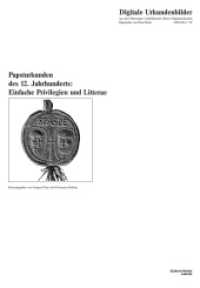Full Description
The Internet and the World Wide Web are deeply affecting the way things are traditionally done. E-commerce is changing businesses; the stock market is accessible to individuals; digitized journals, up-to-date databases, and newsgroups are changing the lives of researchers. Is it reasonable to think that learning will remain unaffected? Nevertheless, universities, with their blend of teaching and research, have much to offer to those who wish to learn more than simple skills: judgment, initiative, and fair competition for research positions. Over the years, universities have acquired invaluable resources in the form of laboratories and libraries with specially trained staff. How can they evolve to take advantage of the many possibilities of the Internet and broadband communication? Many institutions of higher education are trying to integrate new information and communications technologies into current curricula or to develop new learning paradigms for learning. Because it is still so early in the game they are eager to compare their efforts and results to the achievements of others and are willing to learn from them. The International Federation for Information Processing (IFIP) is a multi national federation of professional and technical organizations, founded in 1960 under the auspices of UNESCO, whose mission is to assist in the development, exploitation, and application of Information Technology for the benefit of all peoples. Given this scope of activity, IFIP seemed the appropriate body to give an international dimension to such a forum.
Contents
The Swiss Virtual Campus: Present Situation and Challenges.- Experiences with a Hybrid Distance Education Model in Central and Eastern Europe.- Munics: Multimedia for Problem-Based Learning in Computer Science.- The Design of a Flexible Hypermedia System.- VirtualBusinessTeams for Professional Development and Team Learning.- Panel on Lifelong Learning.- TC3 Task Force on Lifelong Learning.- IT-Innovation.- Re-engineering University Services to Manage ICT in Education.- Meeting Diverse User Needs.- Creating Web-based Scenarios to Support Distance Learners.- CATWEB: A Tool for Developing Courses for the Web and from the Web.- Combined Research and Curriculum Development of Web and Java Based Educational Modules with Immersive Virtual Environments.- Moving towards an Effective Electronic Training Environment.- Building Electronic Educational Environments: Why,What and How?.- Assessing Instructional Technology.- Better Learning Online?.- Commonalities and Differences in Electronic Educational Environments.- Participants in the 1999 1FIP WG3.2 and WG3.6 International Working Conference on Building University Electronic Educational Environments.







